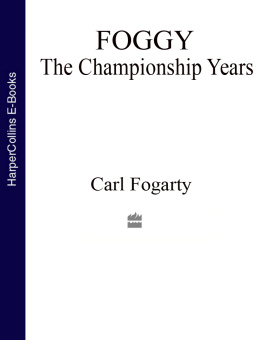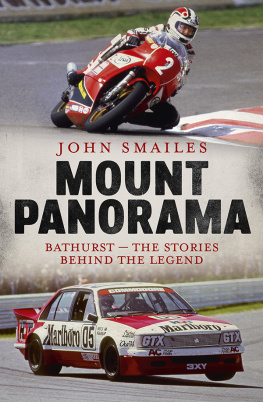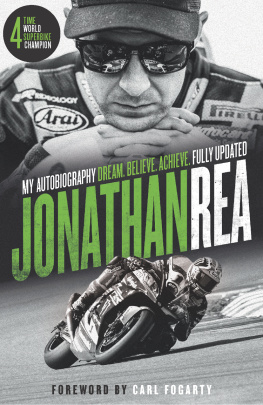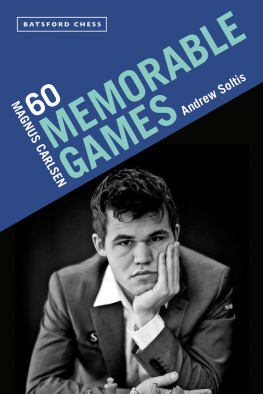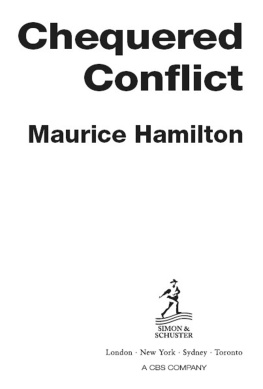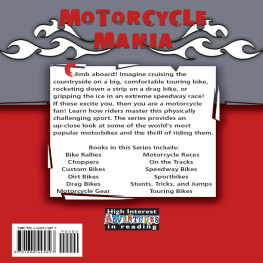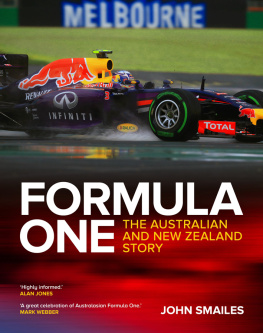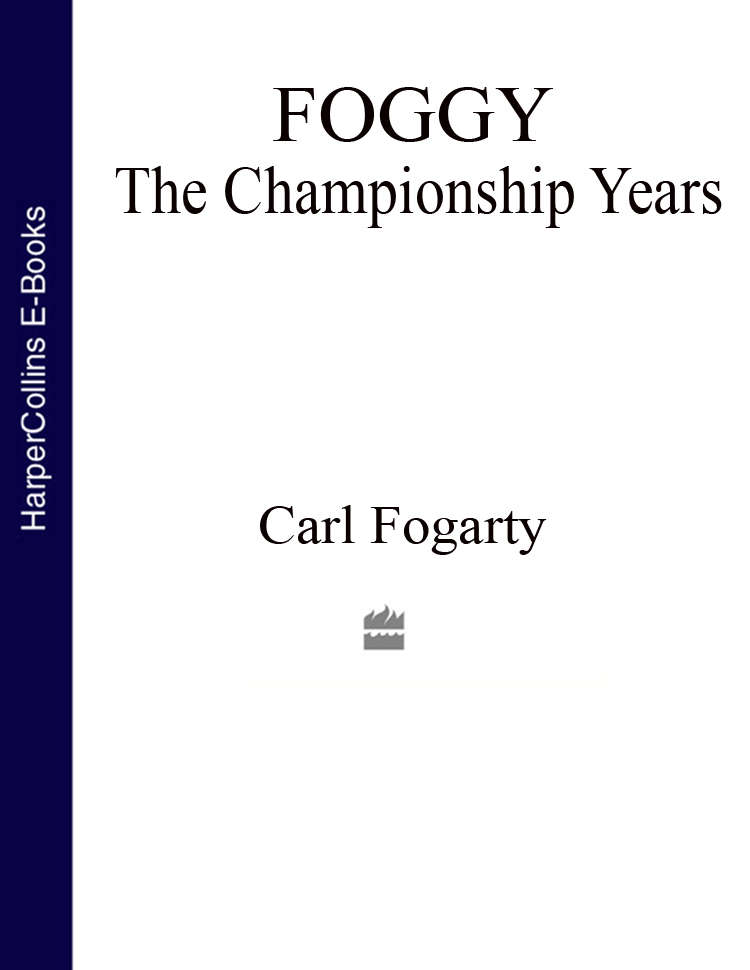Contents

HarperCollinsPublishers Ltd.
1 London Bridge Street
London SE1 9GF
www.harpercollins.co.uk
All photographs supplied courtesy of Gold&Goose Supplementary photographs provided by Kel Edge
First published in 2004
Copyright Carl Fogarty and Neil Bramwell 2004
A catalogue record for this book is available from the British Library
Carl Fogarty and Neil Bramwell assert the moral right to be identified as the authors of this work
All rights reserved under International and Pan-American Copyright Conventions. By payment of the required fees, you have been granted the nonexclusive, non-transferable right to access and read the text of this ebook on screen. No part of this text may be reproduced, transmitted, downloaded, decompiled, reverse engineered, or stored in or introduced into any information storage retrieval system, in any form or by any means, whether electronic or mechanical, now known or hereinafter invented, without the express written permission of HarperCollins ebooks
HarperCollinsPublishers has made every reasonable effort to ensure that any picture content and written content in this ebook has been included or removed in accordance with the contractual and technological constraints in operation at the time of publication
Source ISBN: 9780007190706
Ebook Edition August 2017 ISBN: 9780008275785
Version: 2017-08-30
One of the questions that I have been asked most frequently since my retirement from racing is whether team ownership can ever replace the thrill of winning a race as a rider Well, the answer is definitely No! And in this book, which focuses on my winning and the sheer emotion I felt passing that chequered flag in first place, it should be obvious for all to see. It wasnt riding at incredible speeds or getting my knee down through a corner, it was knowing I was the best. These pictures show that I was never one to hide my emotions, and how my single-mindedness might not have made me the most popular rider in the paddock while I was racing. Nowadays all the riders seem to be friends but there was usually a tension in the air when I was racing. I had to make myself almost hate my rivals so that I would be even more determined to beat them at whatever cost. And my fans loved it!
But, as they say, all good things must come to an end and, after the crash at Phillip Island in 2000, when I shattered my left shoulder; it was simply no longer possible to ride. Most sportsmen have to decide the best time to call it a day and retire but the decision was made for me.
The question was then what the future held. Sportsmen can either disappear into the background, counting their money, or accept a new challenge. And I dont think I would ever have been happy retired from racing if I hadnt had something to focus my competitive instincts on. So, the next best thing to winning races as a rider has to be winning them as a team owner. That in itself is easier said than done because motorsport is a costly business. You cannot simply decide to set up your own team without the necessary backing. And maybe this is where my career has come full circle: for if I had not been so intent on winning when I was racing, I would not be involved in bike racing at the level I am today.
I am best known for my four World Superbike titles. Those championship wins were achieved when World Superbikes was at its peak, with a lot of factory-supported teams and a lot of very talented riders. And it wasnt as easy for the Ducati factory riders in those days as it has been recently. Believe me, I fully earned every race win and every world championship. But people sometimes forget that I have another three world titles under my belt, two in Formula One TT racing and one World Endurance Championship. Add to that the FIM World Cup title in 1990 and I have won eight world titles in total.
Having been brought up around road racing my dad George was also a racer I knew from an early age that all I wanted to do in life was to become the world champion. But those early days, when we operated out of the back of a van with minimum sponsorship, were a far cry from the level of support that the top teams now receive. Just look at the pictures from Pergusa in 1988 to get a feel for the kind of outfit that was behind me back in those days.
But everyone has to start somewhere and, from my days in schoolboy motocross through to my holding those world championship trophies aloft, one thread ran through my career I could not stand to lose. And that was probably what set me apart from other riders. It didnt matter what the race, there was only one place to finish. And, before I became a factory rider, I needed to race and win as often as possible just to pay the bills.
So, as a privateer in 1992, I jumped at the chance to ride in the Malaysian championships for the PETRONAS Sprinta team, run by David Wong, a consultant for the PETRONAS Motorsport department. There were a couple of fast young Aussies to beat, but I managed to win a few races quite comfortably. That must have impressed PETRONAS, Malaysias state-owned petroleum corporation, because when we started to look for sponsorship for my own team in 2001, David, who had remained in touch throughout my career, was soon in contact. PETRONAS had been funding the development of a new 989cc triple engine, called the GPI, with its Swiss-based joint-venture company Sauber PETRONAS Engineering. It was expected that the engine would be leased to Grand Prix motorcycle teams, but my successful association with PETRONAS resulted in a five-year World Superbikes project, with my team Foggy PETRONAS Racing making our debut in 2003 on the first Malaysian superbike, the PETRONAS FPI.
The sheer scale of the project, which also involved the creation of an elite race bike for the road, really hit home when the road version was launched at the PETRONAS twin towers in Kuala Lumpur in November 2003. Sure, we had a few teething troubles in the first year of racing but, at the time of going to press, we have achieved two podiums and a pole position, with promising signs of more to come. But, as everyone should know by now, I wont be happy until one of our riders is standing on the top step of that podium.
You might well ask what Carl Fogarty, a lad from Blackburn, Lancashire, who didnt pay much attention at school but was pretty talented on a motorbike, can bring to the running of a successful racing team. Well, I pretty much leave the business side of things to the experts. And, sure, my reputation helps raise the profile of the team, which is also very important. But with that reputation comes expectation and nobodys expectations are higher than my own. Throughout my career as a rider I would never settle for second best. I expected to win races and I expect my team to do the same. When Chris Walker, another competitive guy if ever there was one, brought the bike home in third place at Valencia in the first race of the 2004 season, I couldnt help leaping over the pitwall and onto the track to celebrate. If just a fraction of that desire for success can rub off on the team, from the riders down throughout the whole team, then I will feel I have been successful in my new role.
So, while I am able to look back on the championship years with pride, Id like to think that there are more chapters of this book still to fill


